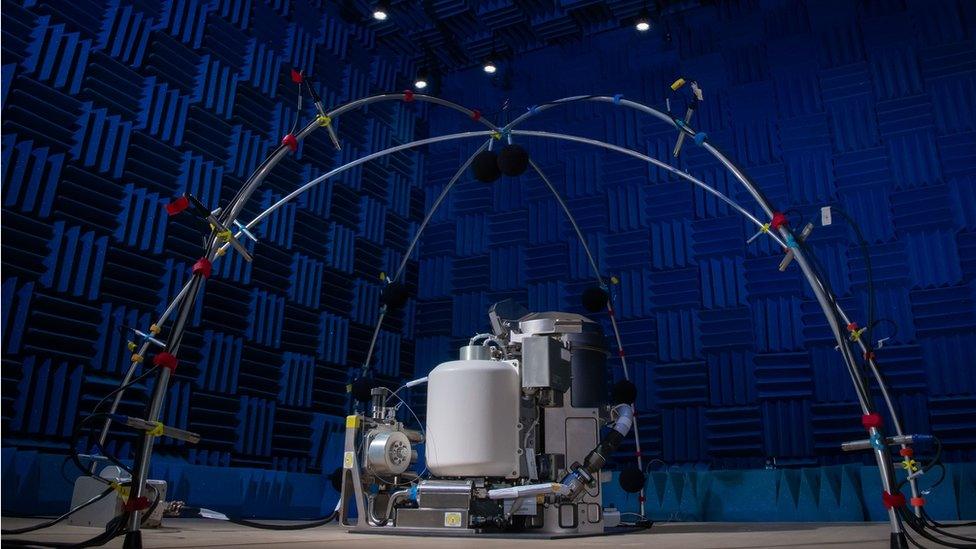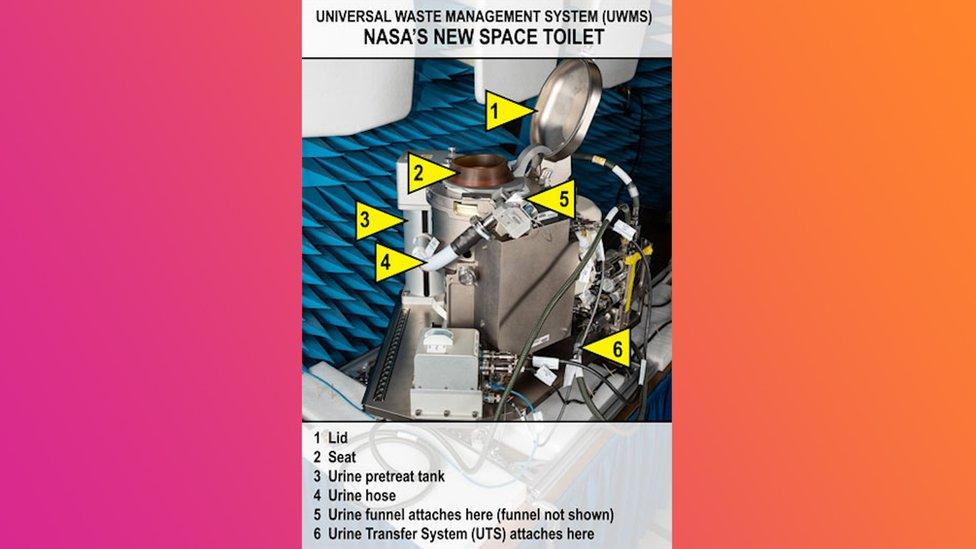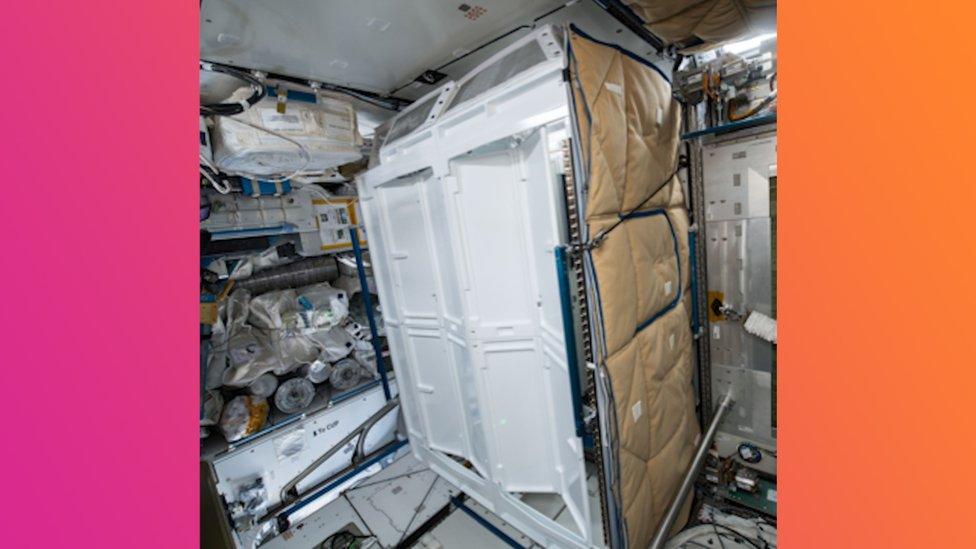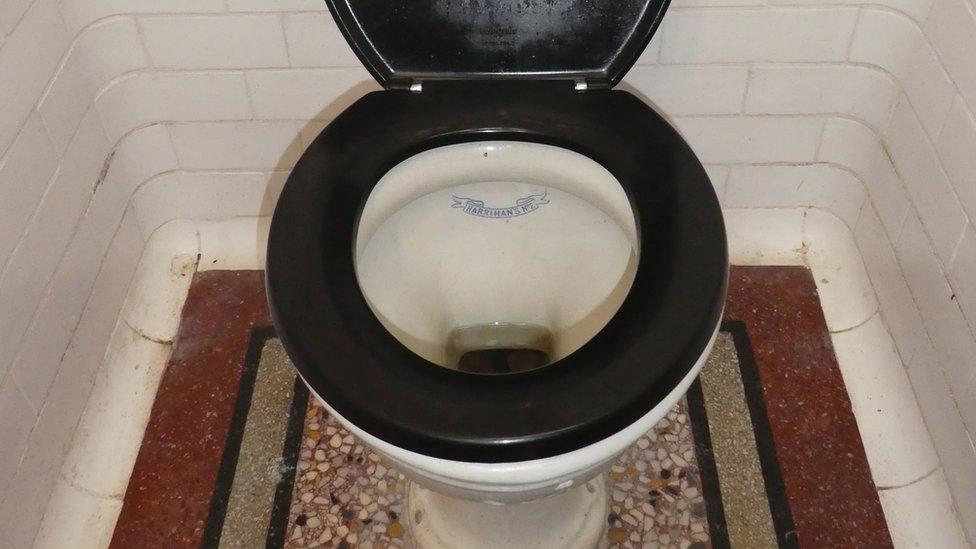Nasa install new toilet aboard the ISS
- Published
- comments

It's the question we all want to know the answer to... what are the toilets like in space?
Well never fear the answer is here... Nasa have just spent over $23 million dollars (£16 million) on a brand new toilet!
Going to the toilet is a basic human need but when you're in space with a lack of gravity things can get a bit tricky, but it's about to get easier.
Astronauts have been installing the new toilet aboard the International Space Station (ISS).
The loo has been redesigned with fancy renewable tech and better functions for women.
Let's check it out!
Better for women

The Nasa toilet, called the Universal Waste Management System, has been redesigned for female astronauts after feedback about comfort and easy of use.
Previous toilet systems, and even spacesuits, had been designed for men in the early days of space travel.
This has now been redesigned to make it easier for women to go to the bathroom.
How do use the toilet in space? British astronaut Tim Peake explains
Recycle that waste
Recycling is really important on the space station.
"We recycle about 90% of all water-based liquids on the space station, including urine and sweat," said NASA astronaut Jessica Meir.
The toilet will feed pre-treated urine into a system which recycles water for further use. So yes astronauts do drink their wee after it has been filtered and processed.
"What we try to do aboard the space station is mimic elements of Earth's natural water cycle to reclaim water from the air. And when it comes to our urine on ISS, today's coffee is tomorrow's coffee," Jessica added.
It's important to be able to recycle on the space station because it saves having to send water from Earth. This is particularly important on roundtrip missions to Mars, which take about two years, because there will be no chance to top off the water supply.
Nasa's goal is to reach 98% recycling rates.

The toilets are in cubicles just like here on Earth for privacy
Compact size
The toilet is 65% smaller and 40% lighter which means more room in the spacecraft.
It has been designed to it can easily be fit into different spacecrafts too.
It will now be installed on the Orion capsule for the Artemis 2 mission around the moon.
- Published3 September 2020

- Published10 June 2021

- Published9 June 2021

